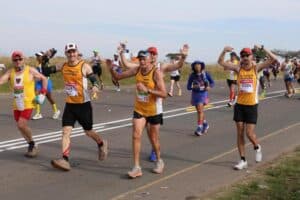Middle-distance star Caster Semenya has lost the latest round in her ongoing battle against controversial new international athletics rules.

Upholding a decision by the Court of Arbitration for Sport (CAS) which allowed World Athletics to restrict Semenya from competing in her specialist 800m distance, the Swiss Federal Supreme Court confirmed yesterday it had dismissed legal appeals made by Semenya and Athletics South Africa, who had claimed the 29-year-old former world champion’s human rights had been violated.
Fairness in sport was a legitimate concern, according to the court, and measures put in place to test and monitor athletes with
Differences of Sexual Development (DSD) were found to “interfere with physical integrity”.
The court did not, however, find that the regulations violated “core” human rights.
“It should be noted that examinations are carried out by qualified doctors and under no circumstances against the will of any female athletes,” the Swiss court said in a statement.
“Ultimately, the CAS decision is also compatible with the guarantee of human dignity. Implicated female athletes are free to refuse treatment to lower testosterone levels.
“The decision also does not aim to question in any way the female sex of implicated female athletes.”
Semenya, a two-time Olympic 800m champion, had been suspended from competing over her specialist distance in July last year after losing her appeal at CAS, with new World Athletics rules preventing hypernadrogenic athletes from participating against women in middle-distance events unless they reduced their natural testosterone levels.
World Athletics maintained its stance that its new DSD rules were aimed at protecting the women’s category in athletics, with the governing body claiming that higher levels of natural testosterone gave them an unfair advantage.
The decision, however, had sidelined some of the world’s top women 800m runners, including Semenya and Olympic 800m silver medalist Francine Niyonsaba of Burundi.
Semenya had revealed earlier this year she would focus on the 200m event for the foreseeable future, a distance which did not fall into the DSD guidelines and allowed her to compete without taking hormone suppressants.
Though she had not yet displayed the same potential over the 200m distance as she did in the 800m event, the 29-year-old former world champion remained confident of targeting a place in the SA team for next year’s Tokyo Olympics.
For more news your way, download The Citizen’s app for iOS and Android.






